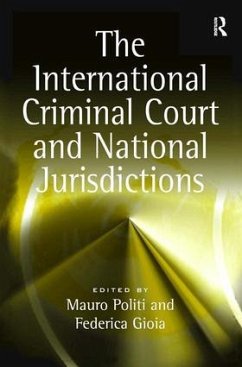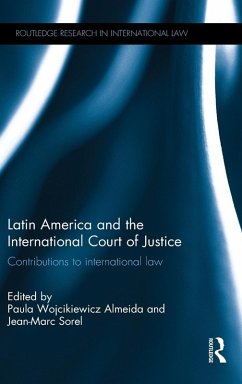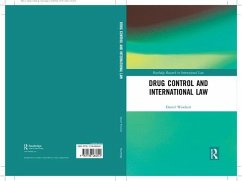
The International Criminal Court and Global Social Control
International Criminal Justice in Late Modernity
Versandkostenfrei!
Versandfertig in 1-2 Wochen
58,99 €
inkl. MwSt.
Weitere Ausgaben:

PAYBACK Punkte
29 °P sammeln!
At its genesis the International Criminal Court was expected to help prevent atrocities from arising or escalating by ending the impunity of leaders and administering punishment for the commission of international crimes. More than a decade later, the ICC's ability to achieve these broad aims has been questioned as the ICC has concluded only two of twenty cases and has reached only one guilty verdict. This book explores the gaps and contradictions that are increasingly defining the ICC, analyzing the Court from a criminological standpoint, and contextualizing the aims and functions of the ICC ...
At its genesis the International Criminal Court was expected to help prevent atrocities from arising or escalating by ending the impunity of leaders and administering punishment for the commission of international crimes. More than a decade later, the ICC's ability to achieve these broad aims has been questioned as the ICC has concluded only two of twenty cases and has reached only one guilty verdict. This book explores the gaps and contradictions that are increasingly defining the ICC, analyzing the Court from a criminological standpoint, and contextualizing the aims and functions of the ICC within understandings of the role of crime and criminalization in an increasingly global world.














